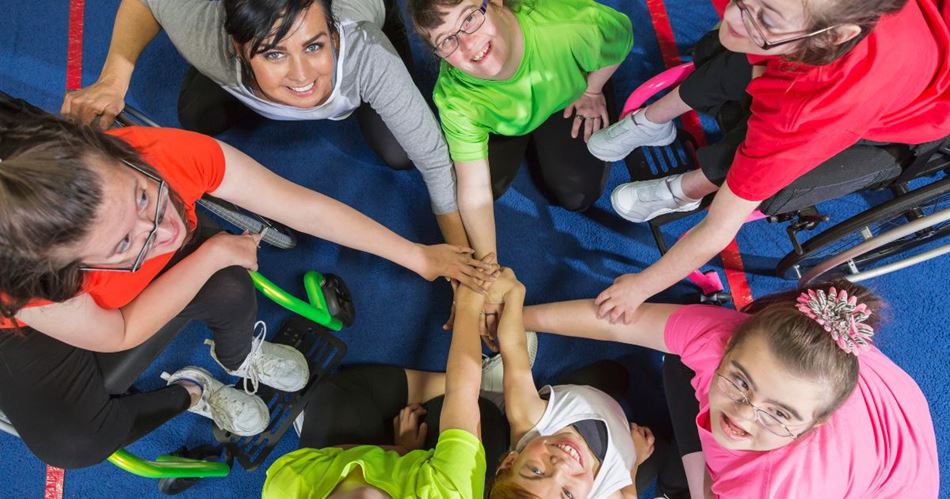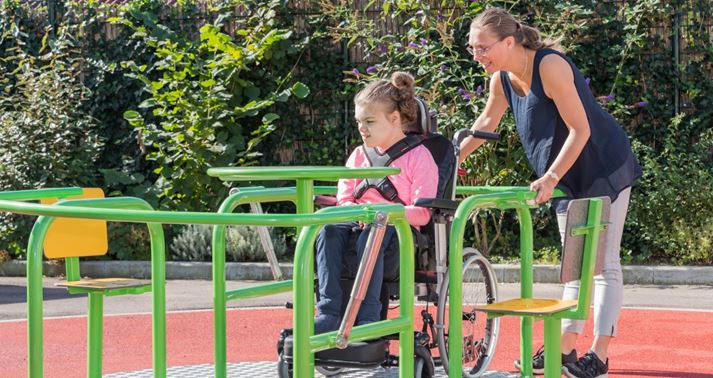Creating a Compassionate Future for Disability Support
03 March, 2025

Empowering people with disability begins with empowering the workforce that supports them. Andrea (Andy) Sherratt, Director of Community Care at McArthur Community Care, knows this firsthand. Reflecting on her early experience in the sector, she recalls the challenges of stepping into a support role without the necessary training. It was a formative experience that shaped her commitment to ensuring that every disability support worker is equipped with the skills and knowledge they need to provide high-quality, compassionate care.
Her message is clear: to build a stronger, more inclusive disability support system, we must prioritise both the people receiving support and the professionals providing it.
Empowering People Through Quality Support
At the heart of effective disability support is the principle of choice and control. Every person living with a disability has the right to make decisions about their own life, from the services they receive to the way they want to engage with their communities. However, for choice and control to be truly meaningful, support workers must be trained to facilitate independence rather than inadvertently limiting it.
Empowering people with disability means listening to their voices, respecting their choices, and providing them with the right support at the right time. This approach not only enhances their quality of life but also ensures that they can actively participate in society on their own terms.
For support workers, this requires more than just technical skills - it demands empathy, cultural competency, and a deep understanding of the challenges and aspirations of the people they assist.
The Importance of Comprehensive Training and Support for Workers
Andy’s early experience highlights a challenge that persists today: disability support workers need proper training and preparation before stepping into their roles. Simply assigning a worker to a person without ensuring they have the right skills and knowledge can be detrimental to both parties.
A well-trained workforce is the backbone of a high-quality disability support system. Workers should be equipped with training in:
- Personal care and complex support needs – Understanding how to assist with daily living activities, medication management, and mobility support.
- Person-centred approaches – Encouraging independence and decision-making in line with each person's goals.
- Effective communication skills – Learning how to listen, engage, and advocate for people in a way that respects their preferences.
- Cultural competency and trauma-informed care – Recognising the diverse backgrounds, lived experiences, and specific needs of people with disability.
Investing in workforce development not only improves the quality of care but also enhances job satisfaction and retention among disability support workers. When workers feel valued, supported, and prepared, they are better able to provide the compassionate and competent care that people with disability deserve.
Building a Culture of Respect and Recognition
One of the most powerful takeaways from Andy’s reflections is the need for a cultural shift in how we view and support both people with disability and the workers who assist them.
People living with disability should be seen and treated as active members of society - not as passive recipients of care. Similarly, support workers should be recognised for the vital role they play. Often, disability support work is undervalued compared to other healthcare and social services professions, despite being equally essential.
To create a truly compassionate and sustainable support system, we must:
- Advocate for fair wages, better conditions, and professional recognition for disability support workers.
- Ensure that people with disability have genuine opportunities for inclusion and participation in their communities.
- Promote a culture of empathy and respect, ensuring that every interaction—whether from a government agency, service provider, or community organisation—is rooted in dignity and understanding.
The Role of Providers in Driving Change
Disability service providers like McArthur Community Care play a crucial role in shaping the future of disability support. By prioritising comprehensive training, fostering a culture of respect, and advocating for better conditions for workers and participants alike, providers can set a new standard for excellence in care.
Andy’s vision is one that McArthur Community Care embraces every day - ensuring that both support workers and people with disability feel valued, respected, and empowered.
A Call to Action: Be Part of the Change
The future of disability support is in our hands. Whether you are a support worker, a service provider, a policy maker, or a community member, you have the power to contribute to a more compassionate and inclusive system.
- If you’re a support worker, seek out professional development opportunities and advocate for the resources you need to provide the best care possible.
- If you’re a service provider, invest in your workforce, prioritise person-centred care, and champion the rights of people with disability.
- If you’re a community member, challenge misconceptions, advocate for inclusivity, and support businesses and organisations that champion disability rights.
At McArthur Community Care, we are committed to making a difference. If you’re looking for a provider that prioritises quality, compassion, and respect in disability support, we invite you to learn more about our services.
Share this Article
Related Articles
Changing NDIS Providers: How to Navigate Service Closures with Confidence
If your NDIS provider is closing services, your support does not have to stop. Discover your rights, how to switch providers with confidence, and how McArthur Community Care can ensure a smooth transition with reliable, long term support.
Learn MoreCreating a Compassionate Future for Disability Support
Empowering individuals with disability starts with equipping support workers with the right skills. McArthur Community Care advocates for quality training, respect, and inclusion to create a compassionate future for disability support.
Learn MoreBuilding Relationships: A Cornerstone of Exceptional Disability Care
Alice’s story highlights the power of person-centred disability care. Shared by Stewart Pope of McArthur Health Support, it underscores the need for tailored support over generic models, advocating for policies that prioritise relationships, safety, and dignity.
Learn MoreEssential Credentials and Qualifications You Need to Work as a Disability Support Worker
Disability support workers play a vital role in delivering safe, person-centred care under the NDIS. This guide outlines the essential credentials, checks, and qualifications required to work in the sector or engage support workers with confidence.
Learn More



